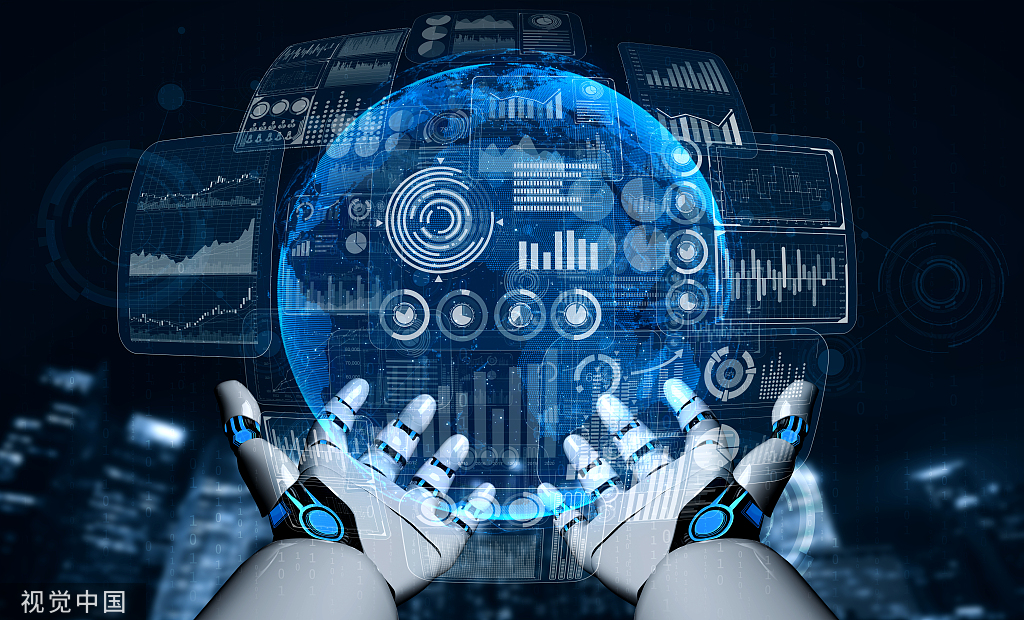Age of AI: A more inclusive digital world
By Toby Symonds | chinadaily.com.cn | Updated: 2023-06-22 18:22

Artificial intelligence has become an integral part of our lives, transforming the way we live, work, and interact. We are currently witnessing the dawn of a new era, the Age of AI, where the potential for innovation and advancement seems limitless. In this age, AI has the power to build a digital world characterized by exchange, mutual learning, and inclusiveness.
One of the key features of the Age of AI is the seamless exchange of information and ideas. AI systems are capable of processing vast amounts of data, analyzing patterns, and generating valuable insights. This ability to exchange information rapidly and effortlessly has the potential to revolutionize various industries, such as healthcare, finance, and education.
In the field of healthcare, AI-powered systems can help doctors and researchers share, exchange and analyze data at record speeds. Reducing waiting times for test results and identifying patterns and trends that can be used to more accurately diagnose and treat patients. It is the speed of AI that is really astonishing; with the right prompts, AI can identify data patterns in minutes or even seconds that would take a doctor or researcher weeks or even months.
By analyzing patient data from around the world, AI can identify patterns and trends that may not be apparent to individual practitioners. This exchange of knowledge can lead to more accurate diagnoses, personalized treatments, and improved patient outcomes.
Similarly, in the financial sector, AI algorithms can analyze vast amounts of market data, identify trends, and make informed investment decisions. The exchange of financial insights and strategies facilitated by AI can empower individuals and businesses to make smarter financial choices and create a more inclusive economy.
AI apps can now give financial advice in record time based on past data and up to the minute news. Of course, like their human predecessors they cannot guarantee huge rates of return.
Professors and teachers across the world are now coming to grips with the AI revolution and what it means for them and their students. How many students will save time and energy by having AI write their essays and assignments rather than writing them themselves? Will teachers and professors use AI to create their own lesson plans and assignments? We are currently seeing a rise of new plagiarism tools and apps to counter the AI generated essays, but how inclusive is this? Will we see AI tools being used in the same way as the quotation system we currently use for essay writing?
Like any new technology there is a certain amount of fear and a lot of questions to be answered on the use, exchange, advantages and disadvantages of AI, but one thing seems clear: By democratizing access to information and services, AI can help create a more equitable and a more inclusive society.
These AI-related issues will be discussed at the World Internet Conference Nishan Dialogue on Digital Civilization, which will be held in Qufu (the birthplace of Confucius), Shandong province, at the end of June.
Chinese civilization is one of the oldest civilizations in human history and is still flourishing today. The combination of AI and Chinese cultural heritage will not only open up new paths for the development of AI technology, but will also bring new opportunities for the development of Chinese civilization.
The author is Toby Symonds from London, UK. He is a teacher, author and social media influencer currently based in Sichuan, Chengdu.
The opinions expressed here are those of the writer and do not necessarily represent the views of China Daily and China Daily website.
If you have a specific expertise and would like to contribute to China Daily, please contact us at opinion@chinadaily.com.cn, and comment@chinadaily.com.cn.
























